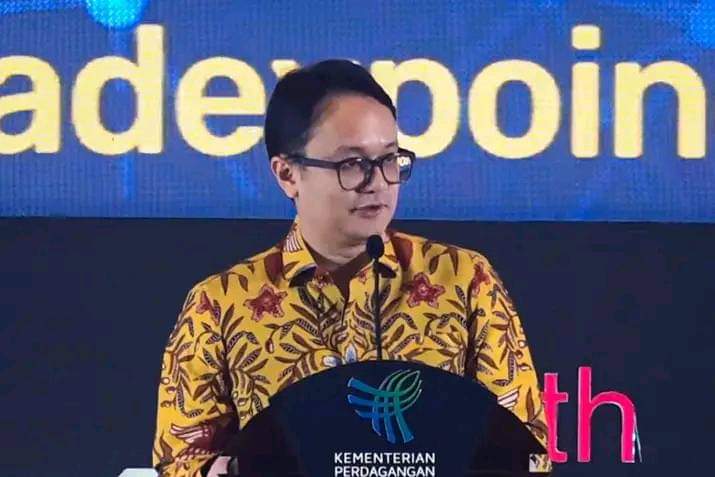Japan and Indonesia Forge Ahead with Enhanced Economic Partnership
JAKARTA, RAKYAT NEWS- Indonesia and Japan are poised to enhance their bilateral trade relations with new breakthroughs in economic cooperation under the Indonesia-Japan Economic Partnership Agreement (IJEPA)
According to Deputy Minister of Trade Jerry Sambuaga, the future between the two countries are better
Jerry expressed confidence in the potential for further developing bilateral trade through the utilization of IJEPA, highlighting the support from the Japan Chamber of Commerce and Industry (JCCI) in fortifying economic ties between the two nations.
“With extensive negotiations, we anticipate that businesses can leverage IJEPA to explore and expand market access opportunities between Indonesia and Japan,” Jerry stated in Jakarta
The ongoing negotiations for the IJEPA Amendment Protocol are currently in the legal scrubbing and final text finalization stages. The amendments aim to enhance various sectors including Trade in Goods, Trade in Services, Electronic Commerce, Movement of Natural Persons, Cooperation, Intellectual Property, and Government Procurement.
Expected to conclude in the second week of July 2024, the Amendment Protocol will undergo internal governmental administrative processes, culminating in its signing by the Indonesian Minister of Trade and the Japanese Minister of Foreign Affairs in September 2024.
Jerry emphasized that IJEPA, signed on August 20, 2007, and implemented on July 1, 2008, marks Indonesia’s first bilateral economic agreement and underscores Japan’s significance as a crucial trading and investment partner.
Japan’s investments in Indonesia from 2019-2023 totaled USD 18.3 billion, predominantly in sectors such as energy, automotive, and property. Indonesia aims to attract more foreign investments in renewable energy sectors as part of its commitment to achieving net zero emissions by 2060 or earlier
Jerry highlighted the importance of global collaboration amidst the ongoing global crisis, stressing the need for closer cooperation between Japanese and Indonesian businesses.
“Indonesia seeks to contribute as a food supplier to Japan, given that 60% of Japan’s food needs are still met through imports,” he added.
In 2023, Indonesia’s exports of palm kernel shells to Japan amounted to USD 550.98 million, marking a 40% increase from 2022. Similarly, exports of wood pellets from Indonesia to Japan reached USD 10.2 million, up by 45% compared to the previous year.
Indonesia and Japan maintain a robust economic relationship rooted in decades of bilateral cooperation and mutual benefit. Japan has consistently been one of Indonesia’s largest trading partners and a major source of foreign direct investment (FDI). The partnership is bolstered by the Indonesia-Japan Economic Partnership Agreement (IJEPA), which came into effect in 2008, aiming to facilitate trade and investment flows between the two nations. This agreement has been pivotal in enhancing market access, particularly in sectors such as automotive, electronics, energy, and infrastructure.
Japan’s investments in Indonesia have been significant, totaling USD 18.3 billion from 2019 to 2023. These investments primarily focus on critical sectors such as energy, automotive manufacturing, and property development, contributing substantially to Indonesia’s economic growth and industrial development. In return, Indonesia serves as an essential supplier of raw materials and agricultural products to Japan, helping to meet the latter’s substantial demand for commodities like palm oil, rubber, and natural gas.
The economic ties between Indonesia and Japan extend beyond trade and investment to encompass technological collaboration and capacity-building initiatives. Japan has been instrumental in supporting Indonesia’s infrastructure development through various projects, including transportation networks and energy facilities. Moreover, both countries are committed to fostering sustainable development, with Indonesia actively seeking Japanese expertise and investment in renewable energy projects to achieve its environmental goals.
Looking ahead, the ongoing negotiations to amend the IJEPA underscore a shared commitment to further deepening economic cooperation. These amendments are expected to modernize and expand the scope of the agreement, addressing contemporary issues such as digital trade and intellectual property rights. As Indonesia and Japan navigate global economic challenges and opportunities, their partnership remains pivotal in driving economic growth, innovation, and resilience in the Asia-Pacific region. (Uki Ruknuddin)



























Tinggalkan Balasan